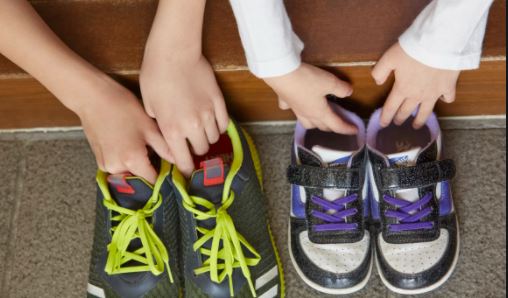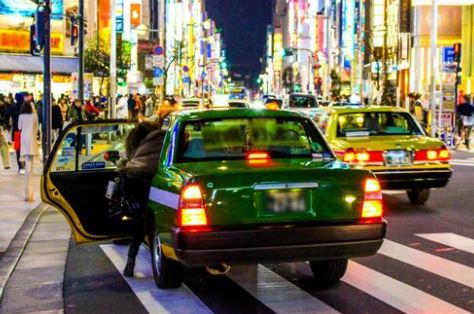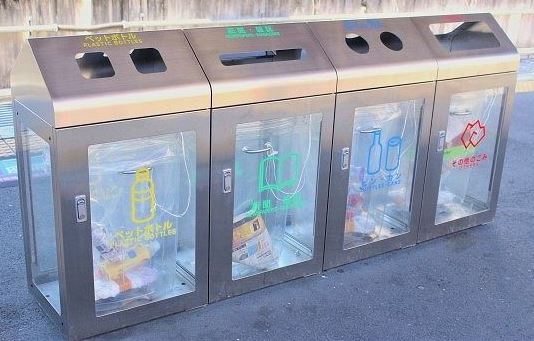10 Things You Need to Know Before Coming to Japan
CONTENTS
- ①The reason why Japan is small
- ②Take off your shoes before entering the house in Japan
- ③Why Japanese people are not very good at English?
- ④Let's send large luggage in Japan
- ⑤No culture of tipping in Japan
- ⑥Watch out taxi door!
- ⑦Look Right, Left and Right!
- ⑧Japanese food is slightly high in salt
- ⑨Let's sort your garbage!
- ⑩Let's keep time and be punctual!
- Japanese Expression You Need to Remember the Most
By Ryoji Shimada, staff writer
If you are a foreigner currently living in Japan, it may seem obvious, but there are many things that may surprise you when you first come to Japan as a non-Japanese. If you know what to expect in advance, you will not be surprised or confused.
Here I would like to provide information for foreigners coming to Japan for the first time, focusing on 10 points.
①The reason why Japan is small
When you come to Japan from a country with a huge land area such as the U.S., China, or Canada, you will feel that Japan is very small. Why is that? The land itself is not that small, actually Japan is bigger than Italy. But it is mountainous with lots of trees! More than 70% of Japan is covered with forests and mountains, so there is very little space for living.
Therefore, no matter where you go, there are always many people and houses are usually small. Especially in Tokyo, except for a few luxury hotels, hotel rooms are very small. However, the wisdom to effectively use such small spaces for a comfortable stay has been developed. You will be impressed by how effectively they make use of such small spaces.
②Take off your shoes before entering the house in Japan

It is said that Japanese people like to be clean. Even in big cities like Tokyo, there is not much trash on the streets, which is due to the nature of Japanese people. That's part of the reason why they take off shoes when entering a house. When you stay at a business hotel, you don't have to take off your shoes, but when you stay at a Japanese-style inn, you have to take off your shoes at the entrance.
The same goes for when you visit a Japanese home. It is important to remember that it is customary in Japan to take off your shoes before entering a house. And preferably please set shoes in order like in the photo.
③Why Japanese people are not very good at English?
Looking at the average TOEIC score by country in 2020, Japan's average score is lower than that of Korea, Taiwan, Hong Kong, and China, although it is higher than that of Indonesia, Thailand, and Vietnam. I don't think that the level of education in Japan is low by any means, but the fact is that not many Japanese can speak English fluently, especially older people.
The biggest reason is that English and Japanese are totally different. Pronunciation, alphabets, grammar, nuances and so on have no relevance between the two languages. Korean is the closest language to Japanese. So many Korean people can speak fluent Japanese. One of my friends gave up studying English but can speak Japanese very well. However, young Japanese people are more willing to speak English.
④Let's send large luggage in Japan
Japan is not only a small country but also has a large population, making it very inconvenient to move around with large luggage. For example, there are many people who travel from Tokyo to Osaka or Nagoya by Shinkansen, but there is almost no space for large luggage in the Shinkansen. If you are planning to go to a distant place, you need to send your luggage by courier in advance.
⑤No culture of tipping in Japan
Some people say that Japanese hospitality is wonderful. However, there is no culture of tipping. No need to calculate! That's great! Of course, everyone likes to be paid including Japanese people, but a simple "Arigato (thank you)" is enough. However, when you get into a cab, it is common to say, "No change is necessary." If the cab driver is very helpful, you can give him more and say "no change."

⑥Watch out taxi door!
When you get into a cab, you basically sit in the back seat. If there are a lot of people in the cab, some people may sit in the passenger seat, but basically, you should sit in the back seat.
However don't touch the door of a taxi! You will get hurt! The back door opens automatically. However, only the door on the opposite side of the driver's seat opens automatically. For other doors, you need to open them by hand. The same applies when closing them.
⑦Look Right, Left and Right!
When crossing a street in Japan, look to the right, then to the left, then to the right again, and be careful when crossing. I don't want you to get hurt. In Japan, traffic is on the left. Most western countries drive on the right side of the road, so be careful when crossing the street in Japan.
It is said that the left side of the road was adopted in the old days to prevent swords from colliding with each other when the samurai was riding on his horse. Basically, swords are carried on the left side of the road. If you drive on the right side of the road, the swords will collide with each other.
⑧Japanese food is slightly high in salt
Japanese food is very healthy, as represented by sushi, miso soup, pickles, etc., and since it does not contain much meat, it is attracting attention as a healthy food all over the world. However, since soy sauce and salt are often used a lot, the food tends to be high in salt. Please eat Japanese food with caution, to avoid high blood pressure. High-blood pressure is common among Japanese people. So watch out eating too much Japanese food!

⑨Let's sort your garbage!
In some countries, garbage is not separated, but in Japan, it is customary to separate garbage in detail. If you look at the trash cans at train stations, you will see three types of trash bins: cans, bottles, burnable and non-burnable.
Even more, when you separate garbage at home, you basically need to separate 11 to 15 types of garbage. It is important to change the habit of throwing everything in the same trash can in Japan. Let us be environmentally friendly!

⑩Let's keep time and be punctual!
Japanese people are very punctual. Trains arrive and depart on time. If the train is two or three minutes late, an announcement will be made apologizing for the delay.
In the business world, the rule is to arrive 5 or 10 minutes before the appointed time. If you are going to be late for an appointment, be sure to let the person know in advance. Nobody wants people to get angry. So when in Japan, let's observe time to keep a good relationship with the Japanese!
Japanese Expression You Need to Remember the Most
The most important phrase in Japanese language is this: "Sumimasen." The expression "Sumimasen" is a very useful Japanese expression. This expression has both the meaning of "Excuse me" and "Thank you" in English. You can use this expression when somebody has done something for you, or when you want to get someone's attention. Even if you don't speak Japanese, it is important to remember this expression at least.


